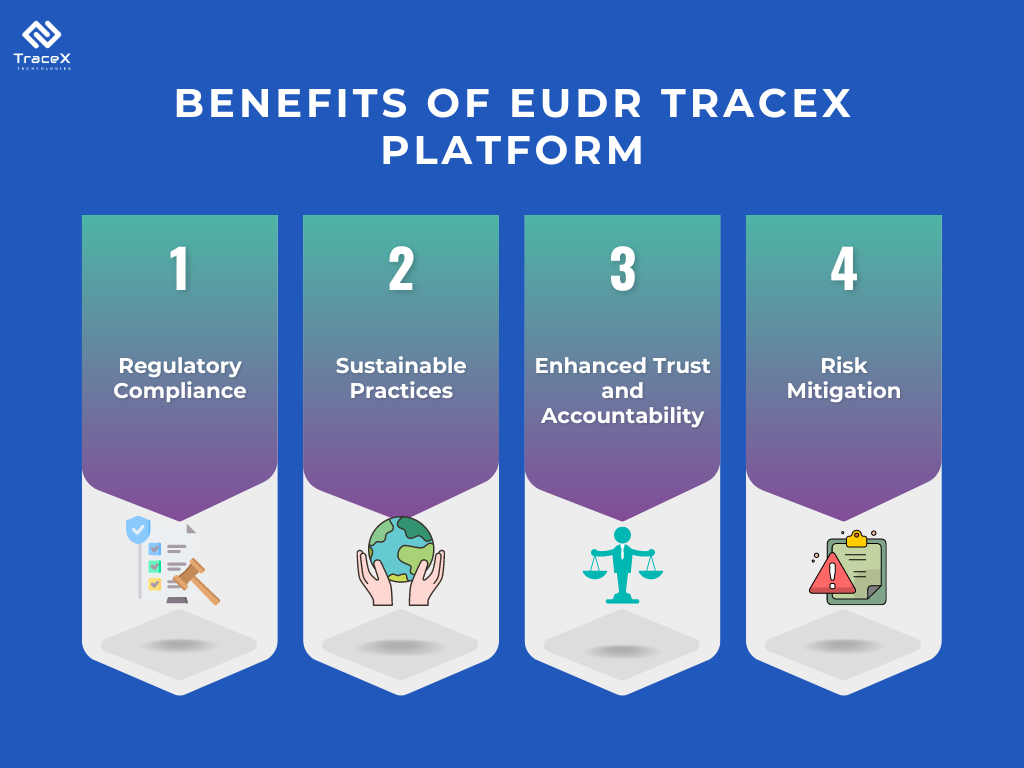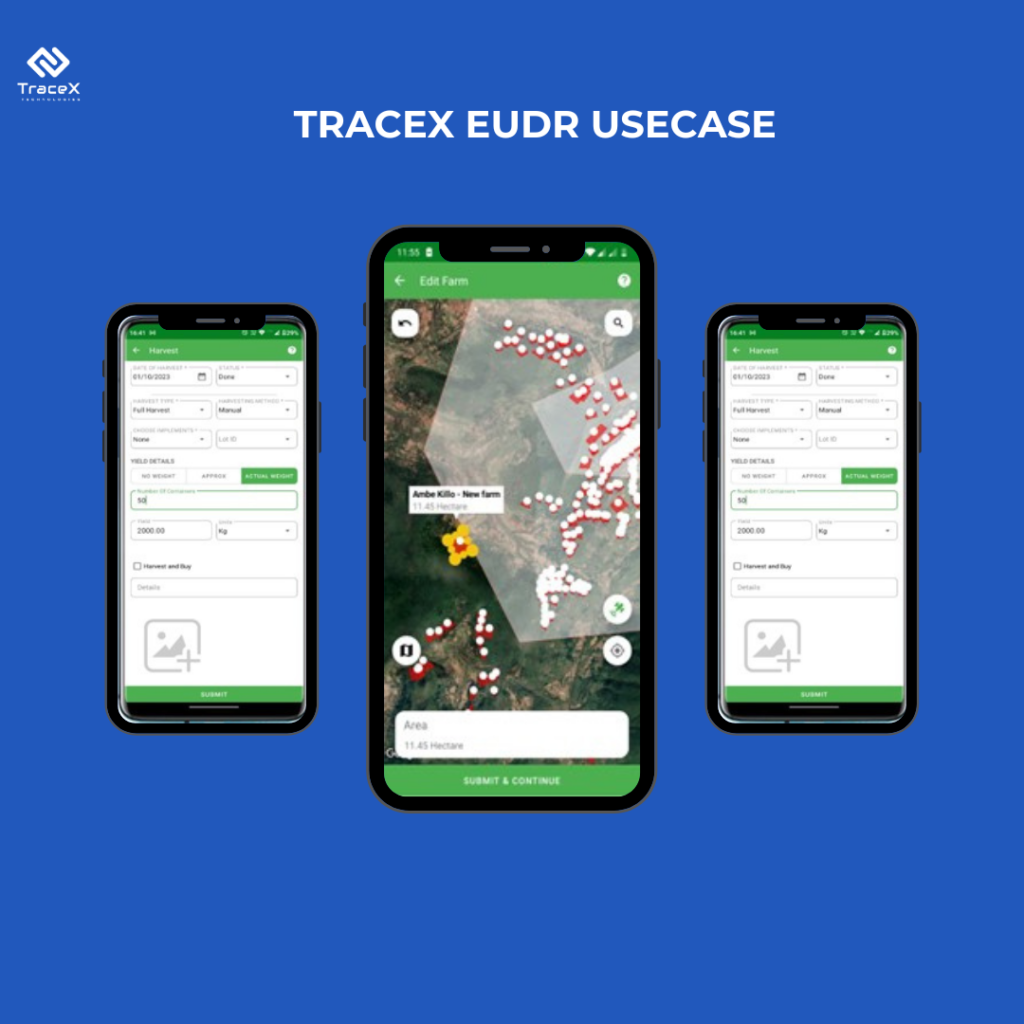Contact: +91 99725 24322 |
Menu
Menu
Quick summary: Explore the challenges and solutions for India's coffee industry to comply with the new EU Deforestation Regulation (EUDR). Discover how technology, collaboration, and a focus on sustainability can pave the way for a deforestation-free future for Indian coffee.

India boasts a rich coffee tradition, with its aromatic beans enjoyed worldwide. However, a new hurdle has emerged for Indian coffee exporters: the European Union Deforestation Regulation (EUDR). This regulation aims to ensure deforestation-free supply chains, but navigating its complexities can be a challenge for Indian coffee producers.
Coffee production is estimated to drive around 100,000 hectares of deforestation globally every year.
From leveraging technology to fostering collaboration, we’ll equip you with the knowledge to navigate this new landscape. So, whether you’re a coffee grower, exporter, or simply a sustainability enthusiast, keep reading to discover how India’s coffee industry can brew a future free from deforestation.
The European Union Deforestation Regulation (EUDR) represents a significant shift in how the EU tackles deforestation within its borders. But its reach extends beyond, impacting agricultural exports like coffee from countries like India. Understanding the EUDR’s key requirements and implications is crucial for Indian coffee producers seeking to maintain access to this vital market.
The EUDR, enforced from December 2023, aims to eliminate deforestation and forest degradation from the supply chains of specific commodities entering the EU market. This includes coffee, cocoa, palm oil, soy, rubber, wood, and cattle.
While the EUDR presents challenges, it also offers an opportunity for India’s coffee industry to demonstrate its commitment to sustainable practices. By proactively implementing solutions like digital traceability platforms and collaborating with stakeholders, Indian coffee producers can navigate the EUDR landscape and ensure continued access to the EU market while contributing to a future free from deforestation.
The European Union Deforestation Regulation (EUDR) presents a significant hurdle for India’s coffee industry, known for its rich tradition and high-quality beans. While the noble goal of eliminating deforestation from EU supply chains is commendable, complying with the EUDR’s requirements poses several challenges.
India’s coffee sector is characterized by a multitude of smallholder farmers, often selling their beans through intermediaries like village cooperatives or traders. This fragmented structure makes it difficult to establish clear ownership and track the origin of coffee beans throughout the supply chain. Enforcing sustainable practices across a vast network of small farms is a challenge. Verifying land use practices and ensuring compliance with deforestation-free standards requires robust monitoring systems that may not be readily in place.
Many smallholder coffee farmers operate with limited resources and may lack awareness of the EUDR requirements. This makes it difficult for them to invest in sustainable practices or implement changes necessary for traceability. Transitioning to deforestation-free practices may require changes in farming techniques, fertilizer use, or waste management. Encouraging smallholders to adopt these practices requires capacity building and support programs.
Currently, there might be gaps in data related to land use and farming practices across India’s coffee-growing regions. This lack of information hinders effective risk assessment and makes it challenging to demonstrate compliance with the EUDR.
Implementing robust data collection methods and establishing systems for managing and storing this information across the supply chain is crucial for traceability purposes. This can be a significant hurdle for smaller players lacking the resources for technology infrastructure.
Implementing due diligence measures, establishing traceability systems, and potentially upgrading technology can impose financial burdens on producers and exporters. Small players in the industry may struggle to absorb these costs without external support. Shifting to sustainable practices and utilizing complex traceability systems may require access to technical expertise that may not be readily available to all stakeholders in the industry.
Businesses need to navigate both the EUDR regulations and existing national regulations on forestry and agriculture. Ensuring alignment between these frameworks and demonstrating compliance with both sets of regulations can be a complex task.

The challenges posed by the EUDR for India’s coffee industry demand innovative solutions. By embracing technology, fostering collaboration, and implementing strategic initiatives, the industry can navigate this new landscape and emerge stronger.
By implementing these solutions and fostering a collaborative spirit, India’s coffee industry can overcome EUDR compliance challenges. This will not only ensure continued market access in the EU but also position the industry as a leader in sustainable coffee production. The journey towards a deforestation-free future for coffee is a joint effort, and by working together, we can create a win-win situation for both the environment and the Indian coffee industry.

This use case depicts the workflow and due diligence processes involved in the coffee supply chain from the perspective of two main entities: Farmer Producer Organization (FPO) and Coffee Processor and Exporter. The goal is to ensure traceability, quality control, and compliance with sustainability practices throughout the supply chain.
Farmers are registered into the system, ensuring that all necessary details are captured. Farms are mapped using geospatial technologies to ensure they are not in restricted or high-risk zones. Farmers proceed with harvesting the coffee, which is now traceable due to geo-mapping.
This involves verifying the identity and ownership of the farms (Know Your Customer – KYC), reviewing land titles, and ensuring that the cultivation practices meet predefined standards.
Coffee from various farmers is procured and brought to aggregation centers.
The procured coffee is combined into larger batches for processing and selling.
Ensuring that the coffee is segregated based on quality and production practices, maintaining the traceability and integrity of the product.
The aggregated coffee is then sold to the processor.
Upon receiving the coffee from Manya Torana FPO, a Goods Receipt Note is issued, acknowledging the receipt of the product. The coffee undergoes several processing steps including drying, hulling, and polishing to prepare it for export.
Throughout the processing stages, due diligence is carried out to ensure that segregation and production practices are adhered to, maintaining quality and traceability. The processed coffee is then exported to various markets.
1. Traceability
– From the point of farmer onboarding and geo-mapping, the coffee is traceable throughout the supply chain, ensuring transparency.
2. Due Diligence
– Rigorous due diligence is performed at multiple stages (onboarding, procurement, aggregation, processing) to ensure compliance with sustainable and quality practices.
3. Integration and Collaboration
– The system highlights the integration and collaboration between farmers, FPOs, and processors to maintain a seamless and transparent supply chain.
4. Sustainability and Compliance
– By mapping farms and adhering to strict due diligence protocols, the system ensures that the coffee supply chain is sustainable and compliant with regulatory standards.
This use case demonstrates how technology and systematic processes can enhance the efficiency, transparency, and sustainability of coffee supply chains.
The TraceX EU Deforestation Regulation (EUDR) platform is a robust solution designed to help companies comply with the EU’s deforestation-free regulations. Utilizing blockchain technology for end-to-end traceability, the platform ensures transparency and accountability across the supply chain. It facilitates detailed data collection, risk assessment, and mitigation, supporting smallholders with tools and guidance to meet compliance. With features like geospatial monitoring and seamless API integration, TraceX empowers businesses to adopt sustainable practices, reduce environmental impact, and maintain market access in the EU by ensuring their products are deforestation-free.
The road to EUDR compliance for India’s coffee industry may be challenging, but it’s not an insurmountable one. By embracing innovation, fostering collaboration, and prioritizing sustainability, the industry can navigate this hurdle and emerge stronger. This journey presents an opportunity to showcase India’s commitment to responsible production, creating a win-win situation for the environment, the future of coffee, and the Indian economy. Let’s work together to brew a future where Indian coffee remains synonymous with quality and sustainability, enjoyed responsibly for generations to come.
